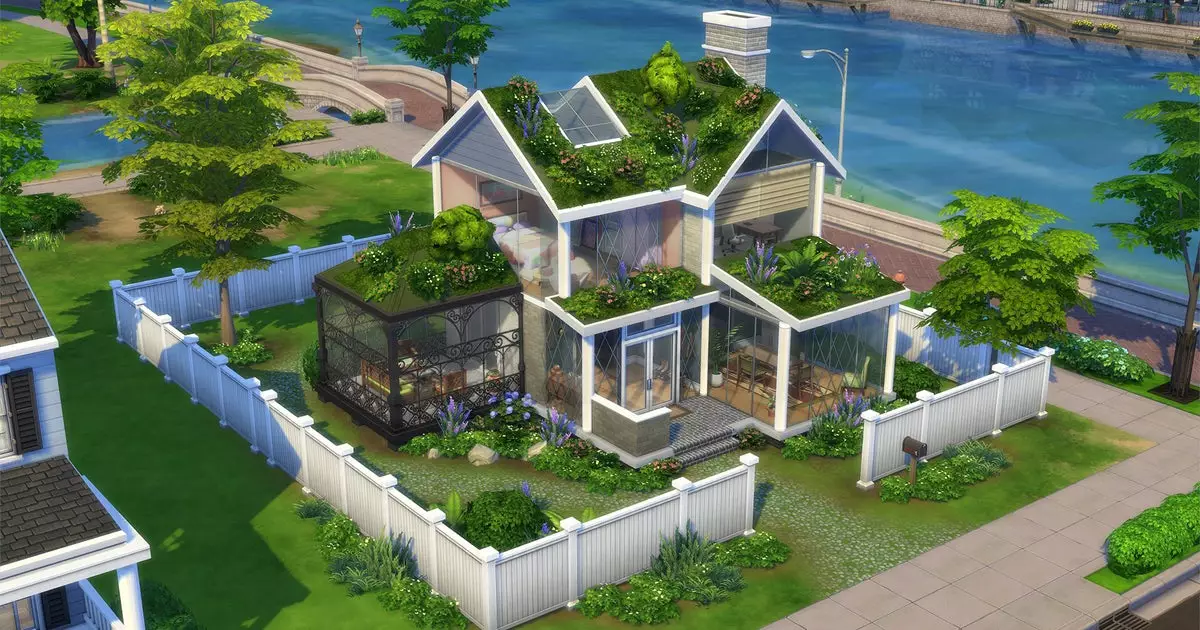The latest update to The Sims 4 signals an intriguing shift in how virtual environments are manipulated, but beneath the surface lies a troubling narrative about creativity, control, and ethics in gaming. While the developers at EA and Maxis celebrated the addition of glass walls and rooftop garden options, they overlook the darker implications of these features. Instead of simply expanding design choices, these tools inadvertently provide a blueprint for extending control over virtual characters—and by extension, our perceptions of agency and morality. What begins as a creative experiment quickly reveals itself to be a stark reminder of how design tools can reflect and reinforce toxic behaviors, even in a simulated universe.
The incorporation of transparent walls, which at first glance seem a harmless aesthetic upgrade, opens a Pandora’s box of potential misuse. Players quickly demonstrated that with these glass barriers, boundaryless prisons become disturbingly feasible. The very feature marketed as an innovative way to build eco-friendly greenhouses or aesthetic homes transforms into a device for imprisoning or isolating Sims—often with little oversight or moral questioning. Such designs expose the unintentional desensitization toward cruelty. The game, a space for creative expression, morphs into a sandbox where the line between entertainment and cruelty blurs, raising vital questions about what behaviors are normalized in virtual play.
This trend—of crafting ‘invisible’ walls—speaks to a broader phenomenon: the dehumanization of digital entities when geographic or moral boundaries cease to exist. As players craft glass cages or see-through prisons, they are essentially practicing a form of detachment from empathy. The game’s mechanics, once purely functional, now serve as a mirror: how often are players tempted to experiment with control or domination simply because the tools make it easy? Moreover, the absence of traditional safeguards—such as doors or walls—amplifies a concerning disregard for the autonomy of in-game characters. It’s a stark reflection of societal issues, where barriers meant to protect are now used to imprison or exploit.
Beyond the ethical quandaries, this update raises questions about game design and responsibility. Developers often tout new features as adding depth and realism; yet, in doing so, they risk encouraging players to explore darker impulses. By providing transparent walls and rooftop gardens, EA and Maxis inadvertently empower a culture of voyeurism and cruelty, where game mechanics facilitate unethical scenarios under the guise of creative freedom. This is especially troubling considering the game’s broad audience; children and impressionable players are exposed to these tools without adequate contextual boundaries, potentially normalizing disturbing behaviors.
Furthermore, the introduction of features like rooftop plants—while seemingly innocuous—adds another layer of complexity. It encourages players to think vertically about space, but it also symbolically elevates the importance of watching over others from above, perhaps subtly reflecting or encouraging a desire for control and surveillance. The new inventory system, designed to manage spoiled food, might appear as a minor convenience, but it subtly reinforces a cold, mechanized view of household management—reducing human care to data points and chores rather than empathy and nurturing.
The key takeaway must be a call for greater responsibility. Developers are tasked not only with offering tools for creativity but also with considering how these tools can be misused. As The Sims 4 evolves, so must the boundaries that prevent unethical play. Transparency and moderation should be prioritized, especially when features can easily be repurposed for malicious or disturbing scenarios. Without these safeguards, what begins as a simple game risks becoming an unintentional training ground for desensitization and manipulation.
The latest update reveals both the potential and peril of game design in shaping digital experiences. It is a reminder that even in a pixelated universe, choices matter—and developers must acknowledge the weight of their innovations. As players, we should be critically aware of how tools meant for fun can cross into territory that challenges our moral boundaries, and we should advocate for more conscientious design moving forward. The game of life, after all, demands more than just freedom to create—it demands responsibility.

